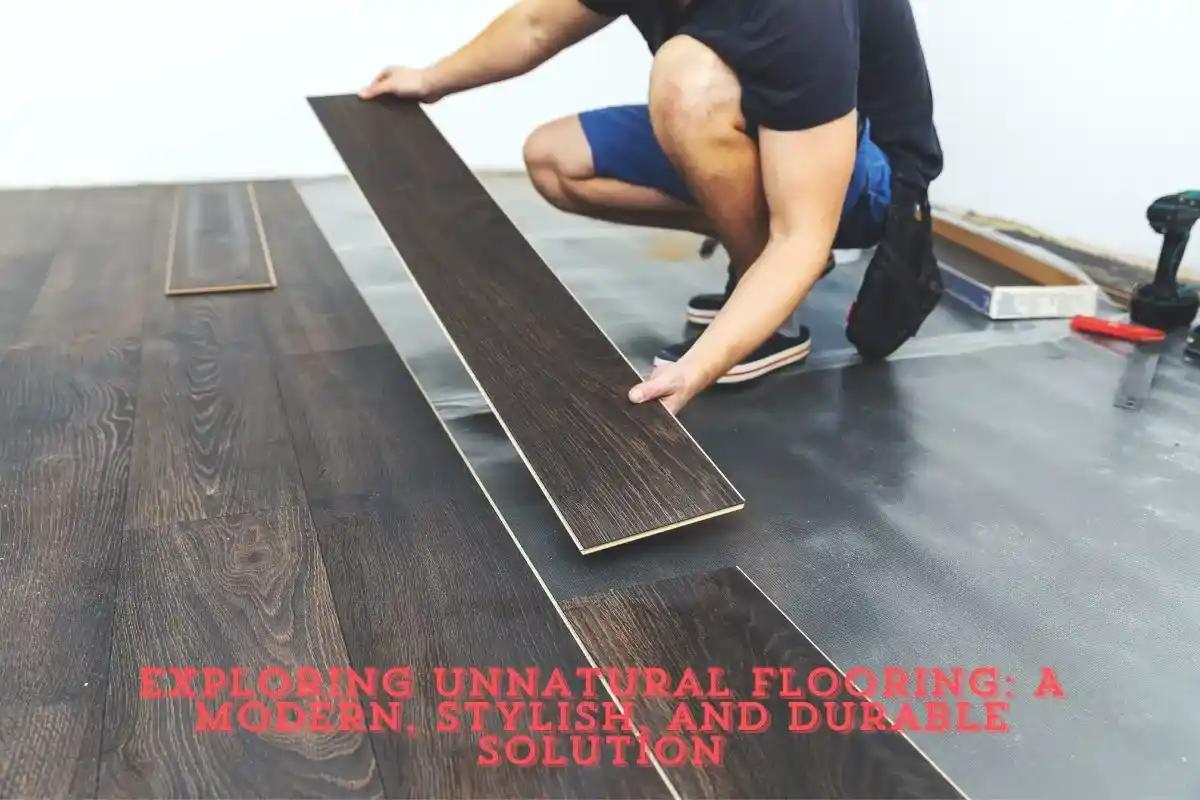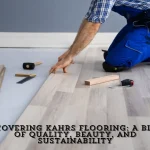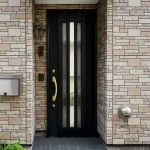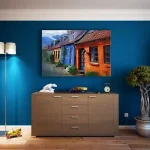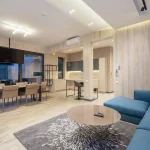When thinking about flooring, the mind often gravitates toward natural materials like hardwood, stone, or tiles. These options have been popular for years, and for a good reason—they offer timeless beauty and durability. However, in recent years, there’s been a shift towards unnatural flooring, which includes synthetic and engineered materials. These alternatives mimic the look and feel of natural surfaces while offering some impressive benefits like increased durability, ease of maintenance, and often a more affordable price tag. If you’re considering a home renovation or are simply exploring flooring options, you might want to give unnatural flooring a closer look. This modern solution could be exactly what you’re looking for in terms of practicality, style, and sustainability.
What is Unnatural Flooring?
Unnatural flooring refers to materials designed to replicate natural surfaces such as wood, stone, or tile. These synthetic or engineered options are created using advanced technology to provide a similar aesthetic but with improved durability, ease of maintenance, and sometimes greater affordability. Unnatural flooring comes in various forms, including vinyl, laminate, and composite floors, among others. Each of these options aims to bring the beauty of traditional flooring materials into modern homes, with additional benefits that make them practical for contemporary living.
| Benefit of Unnatural Flooring | Explanation |
|---|---|
| Durability and Low Maintenance | Unnatural flooring is built to withstand heavy use and frequent wear. Whether it’s vinyl or laminate, these floors resist scratches, dents, and stains much better than natural wood or stone. They require minimal maintenance—no polishing, sealing, or constant touch-ups—making them ideal for high-traffic areas in busy homes. You can simply sweep, mop, or wipe them clean with ease. |
| Stain, Scratch, and Fade Resistance | One of the key advantages of synthetic flooring is its ability to resist stains, scratches, and fading over time. Floors like luxury vinyl plank (LVP) and laminate come with protective layers that make them highly resistant to marks and stains. This feature makes them especially suitable for kitchens, bathrooms, and mudrooms, where spills, pet accidents, and high foot traffic are common. Moreover, the colors and patterns retain their vibrancy for years, ensuring the floor looks like new even after prolonged use. |
| Sustainability | Many modern synthetic flooring options are made from recycled materials like plastic, rubber, and wood fibers. This not only helps reduce the environmental impact but also lessens the demand for raw resources. Some options are even recyclable, contributing to a circular economy. Additionally, synthetic floors often have a longer lifespan, reducing the need for frequent replacements. For environmentally-conscious homeowners, some brands offer LEED-certified flooring that supports green building initiatives and eco-friendly practices. |
| Affordability | Compared to natural flooring options, synthetic materials are much more affordable. Natural hardwood, for example, can be expensive to purchase and install, while materials like luxury vinyl, laminate, or engineered wood provide a similar aesthetic at a fraction of the cost. These floors also tend to last longer, offering a more budget-friendly alternative in the long run. For those working within a renovation budget, unnatural flooring offers a way to achieve a high-end look without the hefty price tag associated with natural materials. |
A Personal Journey with Unnatural Flooring
When I first moved into my house, the thought of replacing the existing hardwood floors seemed daunting. I had two young children and a dog at the time, and the constant maintenance required to keep the hardwood floors looking pristine was starting to take its toll. Scratches, stains, and wear-and-tear from daily life were becoming more and more noticeable, and I knew I needed a solution.
A friend recommended I consider vinyl plank flooring. To be honest, I was skeptical. Could it really mimic the rich look of wood while offering better durability? But after seeing samples and learning more about the advantages, I decided to give it a try. To my surprise, it looked just like wood, and the best part? It didn’t show scratches or dents nearly as easily as the hardwood floors had. It was the perfect solution for my busy household, and I haven’t looked back since.
The Benefits of Unnatural Flooring
So, what makes unnatural flooring so appealing? From personal experience and countless conversations with homeowners and interior designers, I’ve found that there are several compelling reasons why more people are opting for synthetic and engineered flooring options. Let’s break it down:
1) Durability and Low Maintenance
One of the biggest draws of unnatural flooring is its durability. Unlike natural materials, which may require frequent maintenance to keep them looking their best, synthetic flooring options tend to resist damage far better. I recall chatting with Interior Designer Emma Harris, who summed it up perfectly: “Unnatural flooring offers a unique and stylish alternative to traditional materials while providing durability and low maintenance.” Whether you’re dealing with high-traffic areas or homes with pets and kids, unnatural flooring is designed to stand up to the test of time without constant upkeep.
For instance, luxury vinyl plank (LVP) floors are remarkably resistant to scratches, stains, and water damage. I know from personal experience that this is a game-changer in households where spills, pet accidents, and general messes are part of daily life.
2) Stain, Scratch, and Fade Resistance
If you’ve ever experienced the frustration of trying to remove a stubborn stain from natural wood or stone, you’ll appreciate how stain-resistant unnatural flooring can be. Many synthetic flooring options are designed with protective coatings that make them far more resilient to everyday wear. A home improvement expert once told me, “Consider the benefits of unnatural flooring, such as its resistance to stains, scratches, and fading.” This resistance makes it an ideal choice for kitchens, bathrooms, mudrooms, or any other room prone to spills or heavy foot traffic.
I vividly remember a moment when my youngest knocked over an entire plate of spaghetti sauce on the vinyl floor in our kitchen. In the past, I would have panicked over a potential stain. However, with the vinyl flooring, a quick wipe was all it took to clean up the mess, and the floor looked as good as new. No stains, no fading—just like magic.
3) Sustainability
As concerns over environmental impact grow, many homeowners are seeking more sustainable flooring solutions. The good news is that unnatural flooring can often be a greener option. Many synthetic materials are made from recycled products, which reduces waste and the need for raw materials. Sustainability advocate Sarah Green once said, “Many unnatural flooring options are made from recycled materials, making them eco-friendly.”
Unnatural flooring can also contribute to sustainable building practices. For example, certain types of flooring, such as those certified by the U.S. Green Building Council, can help homeowners earn LEED credits. By choosing these materials, you’re not only improving the look and function of your home but also reducing your environmental footprint.
4) Affordability
Renovating a home can be expensive, and flooring is often one of the most significant costs. Natural materials like hardwood, stone, or tile are not only costly to purchase but also expensive to install and maintain. Unnatural flooring options, on the other hand, are often more budget-friendly. Thanks to advancements in manufacturing techniques, many synthetic floors are nearly indistinguishable from their natural counterparts, giving you the look and feel you desire without the hefty price tag.
I’ve had many conversations with homeowners who are pleasantly surprised at how affordable options like vinyl and laminate flooring can be. It allows them to stay within budget while still achieving a high-end look in their homes.
Types of Unnatural Flooring
There are several types of unnatural flooring available, each offering unique benefits and styles. Here are some of the most popular options:
1) Vinyl Flooring
Vinyl flooring is one of the most versatile options on the market today. Modern luxury vinyl plank (LVP) and luxury vinyl tile (LVT) mimic the appearance of natural materials like wood and stone so effectively that it can be difficult to tell the difference. Vinyl is also highly water-resistant, making it an excellent choice for bathrooms, kitchens, basements, or other moisture-prone areas.
Simon Clark, a flooring manufacturer, once said, “Unnatural flooring can mimic the appearance of natural materials like wood, stone, and carpet, without the drawbacks.” And when it comes to maintenance, vinyl flooring is incredibly low-maintenance. It’s durable, easy to clean, and can last for years with minimal upkeep.
2) Laminate Flooring
Laminate flooring is another affordable option that offers the look of wood or stone at a fraction of the cost. Composed of multiple layers, laminate features a photographic layer that gives it its realistic appearance, along with a protective top layer for added durability. Laminate is resistant to scratches and dents, making it a great option for families with children or pets.
One of the standout features of laminate is its ease of installation. With a click-lock installation system, homeowners can install laminate floors themselves without needing professional help, which can save on installation costs.
3) Engineered Wood
Although engineered wood contains a layer of real hardwood, it’s still considered an unnatural flooring option due to its manufacturing process. Engineered wood is made by bonding layers of wood together, which gives it added strength and resistance to moisture. This makes it a suitable choice for areas where solid wood might warp, such as basements or kitchens.
Despite its synthetic nature, engineered wood still offers the warm, inviting look of traditional hardwood floors but with improved durability and moisture resistance.
4) Composite and Hybrid Floors
Composite and hybrid flooring is a blend of natural fibers and synthetic resins, offering the look of natural materials combined with the durability of synthetic products. These floors are often designed to be water-resistant, scratch-resistant, and resistant to fading, making them a great choice for high-traffic areas.
Mary Jones, a product designer, mentioned, “Unnatural flooring often incorporates innovative technologies, such as antimicrobial properties and advanced stain resistance.” This is especially true for composite and hybrid floors, which may also come with added features like moisture barriers and antibacterial treatments.
Installing Unnatural Flooring
One of the main advantages of unnatural flooring is that it’s often easier to install than traditional materials like hardwood or stone. Many synthetic options, such as vinyl and laminate, come in planks or tiles that simply click together, making them ideal for DIY enthusiasts. Even engineered wood can be installed as a floating floor, which means it doesn’t require nails or glue to stay in place.
I remember how quickly I was able to install vinyl flooring in my living room. The planks clicked together with ease, and by the end of the afternoon, the room was completely transformed. My advice? Don’t rush the process—take the time to align each piece carefully for a professional finish.
Unnatural Flooring and Style
In addition to functionality, modern unnatural flooring options are designed with style in mind. Whether you’re after the rustic charm of weathered wood, the sleek sophistication of polished stone, or a unique aesthetic, there’s an unnatural flooring option to suit your taste. Sites like The Spruce offer a wealth of ideas and inspiration for incorporating unnatural flooring into your home decor, making it easy to find the perfect fit for your space.
Conclusion: A Practical, Stylish Choice for Modern Homes
Unnatural flooring offers an exciting and practical alternative to traditional materials. With its durability, easy maintenance, affordability, and wide range of styles, it’s no wonder more homeowners are choosing synthetic options for their floors. Whether you’re looking to renovate a single room or undertake a full home makeover, unnatural flooring might just be the perfect solution for your lifestyle.
Next time you’re considering a home renovation, don’t forget to think about unnatural flooring. It could be the ideal way to enhance your home’s beauty, performance, and sustainability—all at a price that won’t break the bank.
Remember, as a homeowner once shared, “I’m impressed with the durability and easy maintenance of my unnatural flooring. It’s perfect for my busy household.”

